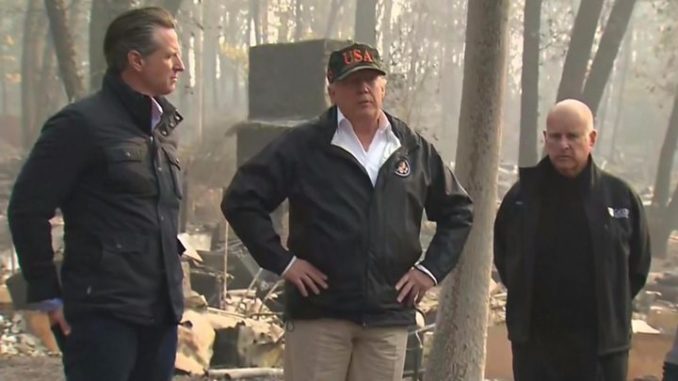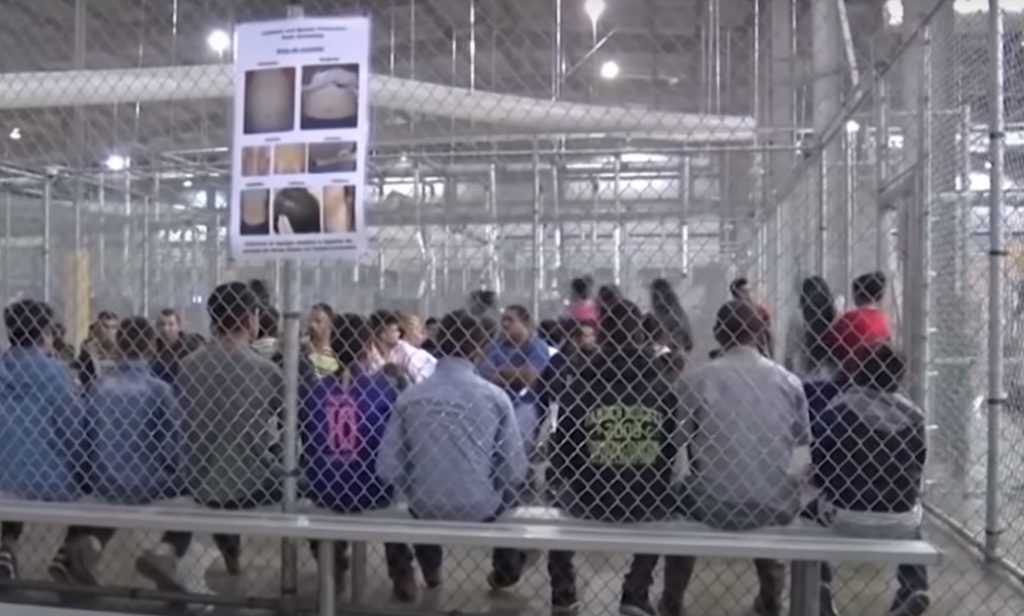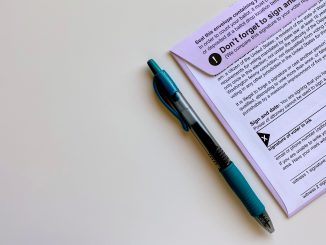

The moment he descended a Trump Tower escalator on June 16, 2015, and launched his first campaign, Donald Trump rewrote the meaning of “presidential.” He went on the offensive, indifferent about offending, and he’s never let up. He bull-rushed his way to the Republican nomination, then the White House, then through four years of Twitter flurries and name-calling.
Trump’s failings haven’t been limited to “fake news” bluster and rampant lying (more than 20,000 documented falsehoods and counting). He’s taken heinous action, too; in the process reshaping many aspects of American life for the worse. From health to the environment to human rights, President Trump has made such an impact that, even if he’s voted out, we’ll feel the ill effects for decades.
Here, the CN&R details the Top 10 most disturbing developments of the Trump presidency.
10. Revolving staff door
Trump made a point that he was seeking “the best and the brightest” to fill his staff. Subjective judgment aside, few have stuck around. The Brookings Institute reports 91 percent turnover among White House senior officials, 59 of 65—and that doesn’t count Cabinet secretaries, 16 (not counting Obama Administration holdovers) dismissals and resignations across the 15 departments.
9. Trade war casualties
Starting during his 2016 campaign, Trump consistently hammered China for its trade relations with the U.S. He called its business dealings “the greatest theft in the history of the world” and said Americans “can’t continue to allow China to rape our country.” As president, Trump initiated a trade war by slapping tariffs on Chinese imports, prompting retaliatory tariffs—notably on agricultural products, such as rice and nuts grown by Butte County farmers.
He extols the resulting “phase one” trade deal with provisions for China to purchase $200 billion more in U.S. goods by the end of 2021. However, the cost of his trade war, according to the Federal Reserve Bank of New York and Columbia University, will be $316 billion to the U.S. economy by the end of 2020 and at least $1.7 billion in companies’ value. That’s not counting diplomatic damage to American-Chinese relations.
8. Rollback of rights
Trump has directed discrimination at many minority groups (more later), but his actions toward LGBTQ people are especially striking. His policies have systematically rolled back rights that have granted equality regardless of sexual orientation or gender identity.
Among myriad actions, Trump and his administration banned transgender servicepeople in the military; allowed states to prohibit LGBTQ people from adopting or foster-parenting; removed considerations of gender identity for assigning prisoners housing and treating employees in the workplace; and stripped LGBTQ nondiscrimination protections from healthcare and health insurance.
7. The planet is his trash can
Just ahead of the State of the Union address this year, nine conservation groups (including Clean Water Action and the Sierra Club) issued this status report: “Donald Trump has been the worst president for our environment in history. Unfortunately, our children will pay the costs of this president’s recklessness.”
Depending on who’s keeping score, Trump has taken about 100 steps to weaken environmental protection. Among them: blocking California from setting fuel-efficiency standards for vehicles; reducing regulations on emissions from power plants and how coal ash gets stored and dumped (i.e., into waterways); removing bans on oil exploration in the Arctic, coastal waters and public lands; authorizing oil and gas pipelines; refusing to ban a pesticide, chlorpyrifos, proven to jeopardize human health; and reducing the scope of the Clean Water Act.
6. Climate denial is his ‘Pleasure’
Few in Butte County will forget Trump visiting the Ridge after the Camp Fire and using the name “Pleasure” instead of Paradise—twice. That blooper, along with his much-maligned remedy for forest fires of “raking and cleaning things,” may seem trifling; add the image of him tossing paper towels to hurricane victims in Puerto Rico, and a bigger picture comes into focus.
This president has called global-warming science a “hoax” and “a money-making industry”—even a Chinese conspiracy to hurt American business. Visiting California last month amid the recent wildfires, he dismissed the connection between natural disasters and climate: “I don’t think science knows [about global warming]. … It’ll start getting cooler, you just watch.”
Trump has acted on his beliefs, mostly notably pulling the U.S. out of the Paris Agreement in which 190 countries have pledged to reduce greenhouse gas emissions.
5. ‘Very fine people on both sides’
Another defining quote of Trump’s presidency came after the 2017 “Unite the Right” rally in Charlottesvile, Va., where white supremacists and protesters clashed—and where Heather Heyer, a 32-year-old protester, was fatally run down by a rally attendee. Trump, stating there were “very fine people on both sides,” did not condemn the killing, much as he failed to disavow white supremacy in last Tuesday’s debate.
Through words and actions, the president repeatedly has drawn dividing lines. He threatened governors with federal military intervention to quell protests in the wake of George Floyd’s killing by a Minneapolis police officer—and, for a photo op at Washington D.C. church, had peaceful protesters forcibly dispersed with tear gas.
4. Impeachment offenses
On Dec. 18, 2019, Trump became the third president impeached by the House of Representatives, with charges against him for abuse of power and obstruction of Congress. Like his historic predecessors, Andrew Johnson and Bill Clinton, he was acquitted in the Senate.
The impeachment articles stemmed from evidence and testimony that Trump held back foreign aid money from Ukraine until the Ukrainian government agreed to launch investigations into Biden and his son Hunter. The president then would not fully cooperate with congressional committees looking into the matter.
More recently, he’s raised the specter of another constitutional crisis by refusing to assure a peaceful transition of power should he lose the upcoming election.

3. Amy Coney Barrett
When a Supreme Court vacancy arose in 2016, Republicans refused to consider the nominee put forth by outgoing President Barack Obama in March of that year, insisting instead that the nomination belonged to the winner of that November’s election. Four years later, with the passing of Ruth Bader Ginsberg on Sept. 18, the GOP flipped 180 degrees and, instead of affording the same courtesy to the 2020 winner, is rushing to confirm a third Trump pick: Amy Coney Barrrett.
Barrett was a law clerk for late Justice Antonin Scalia—and is just as conservative. She’s written about the intersection of faith and law, and as an appellate judge has taken positions against the Affordable Care Act, abortion rights, gun control and immigration. At 48, she would be the youngest justice on the court where appointments are lifetime.
2. Coronavirus (non)response
That the president and First Lady Melania Trump came down with coronavirus last week, despite access to the best preventative measures available, underscores the communicability of COVID-19. As of the CN&R’s deadline (Oct. 2), the disease had sickened 7.3 million Americans and killed 208,300, including 2,840 ill and 45 dead in Butte County.
Trump continuously minimized the threat posed by COVID as it spread from China through Asia, the Middle East and Europe. Though he knew the virus was, in his recorded words, “deadly stuff” in February, he also (per a recording) “always wanted to play it down.”
Meanwhile, as the epidemic grew, Trump withdrew U.S. backing from the World Health Organization and continued his attempts to dismantle the Affordable Care Act, putting health coverage—during a pandemic—at risk for millions of families.
1. Kids in confinement
Trump’s opposition to immigrants is a cornerstone of his “America First” politics. He put limits on legal immigration, removed exemptions for deporting undocumented migrants and placed higher priority on financial means and employment in granting a green card or visa, among other actions.
He aims special antipathy toward Latinos: Since his 2016 campaign launch in Trump Tower, where he claimed that Mexicans who cross into the U.S. are criminals (“and some, I assume, are good people”), he’s ramped up immigration enforcement.
Of all that’s transpired in Trump’s presidency, however, nothing compares to separating children from parents seeking asylum at the U.S./Mexico border. Not only has Trump’s “zero tolerance” policy torn apart families, federal officers have confined children in holding pens fenced with chain link. That legacy endures.




Be the first to comment